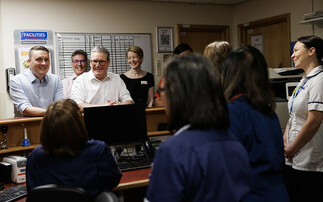Almost half the UK population will get cancer in their lifetime by 2020, according to new projections from Macmillan Cancer Support.
The charity has warned this will put "huge pressure" on the NHS and result in increased demand for cancer support charities.
Around one in three people (32%) who died in 1992 had been diagnosed with cancer at some point in their life. By 2010 this had risen to more than four in 10 (44%). The proportion will continue to rise to be almost one in two (47%) by 2020, the research has estimated.
However, the charity has also predicted a better survival rate for those diagnosed with cancer. More than one in three (35%) of those people who have had a cancer diagnosis will now die from other causes. This is up from one in five (21%) 20 years ago. By 2020 this will improve further to almost four in 10 people (38%).
The number of people who get cancer but die from another cause has doubled over the past 20 years. In 1992, around 45,000 cancer patients died from other causes; by 2010 this had increased to around 90,000.
The most common other causes of death aside from cancer are ischaemic heart disease (20%), respiratory disease (20%) and around one in eight (12%) die from cerebrovascular disease such as stroke.
The growth in the number of people getting cancer has been attributed to overall improvement in life expectancy leading to a greater incidence of cancer. The reduction in the proportion of those diagnosed who die of their cancer is because of a greater focus on early diagnosis, advances in cancer treatments and better cancer care.
Though the survival trend is encouraging, there is growing evidence that many cancer patients do not return to full health after gruelling treatments and the serious side effects of the disease, Macmillan said.
Ciarán Devane, chief executive at Macmillan Cancer Support, said: "Because of the progress in healthcare - ironically largely for conditions other than cancer - in only seven years' time nearly half the population will get cancer in their lifetime. This poses a herculean challenge for the NHS and for society.
'The NHS will not be able to cope with the huge increase in demand for cancer services without a fundamental shift towards proper after-care, without more care delivered in the community, and without engaging cancer patients in their own health.
"Until then, the help and support that organisations like Macmillan provide will become even more urgent and important to ensure no one faces cancer alone.'











